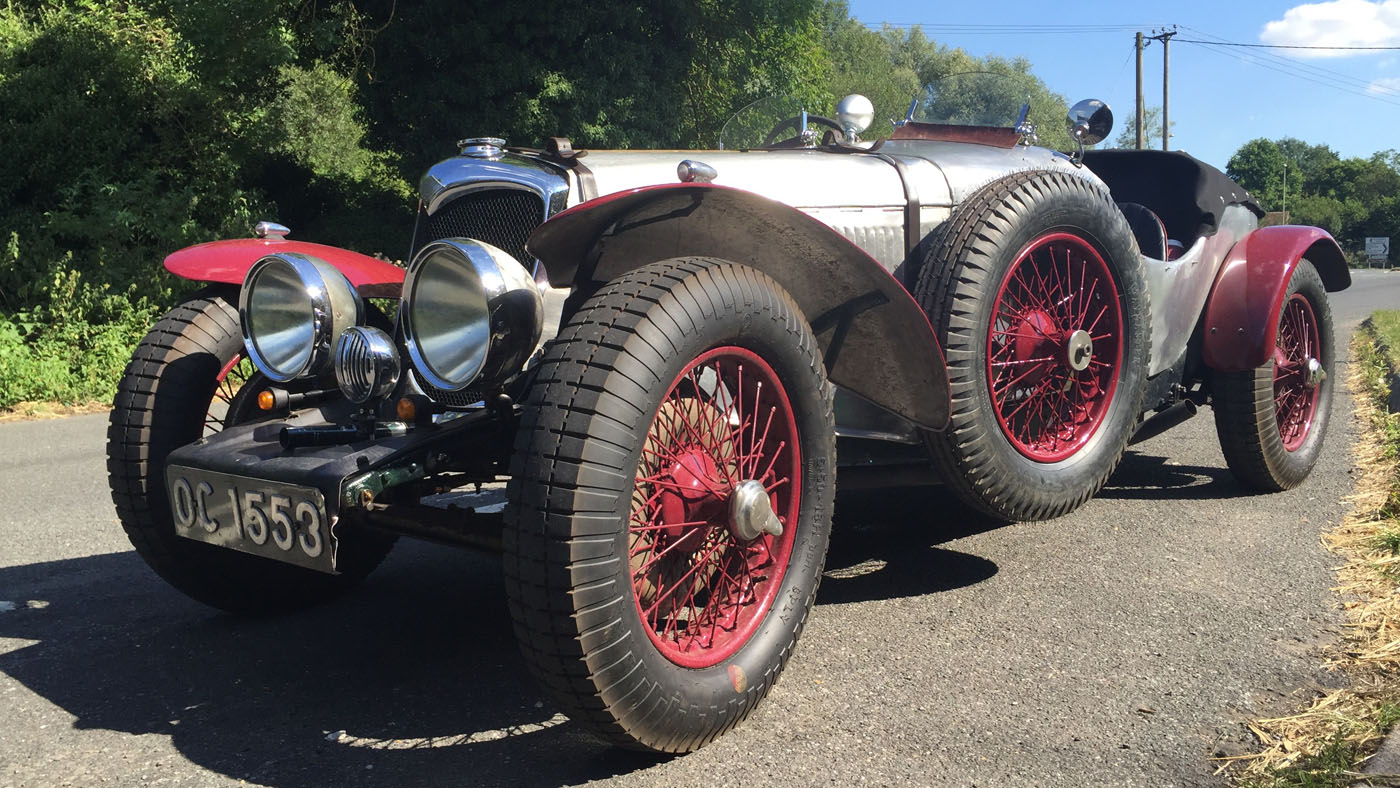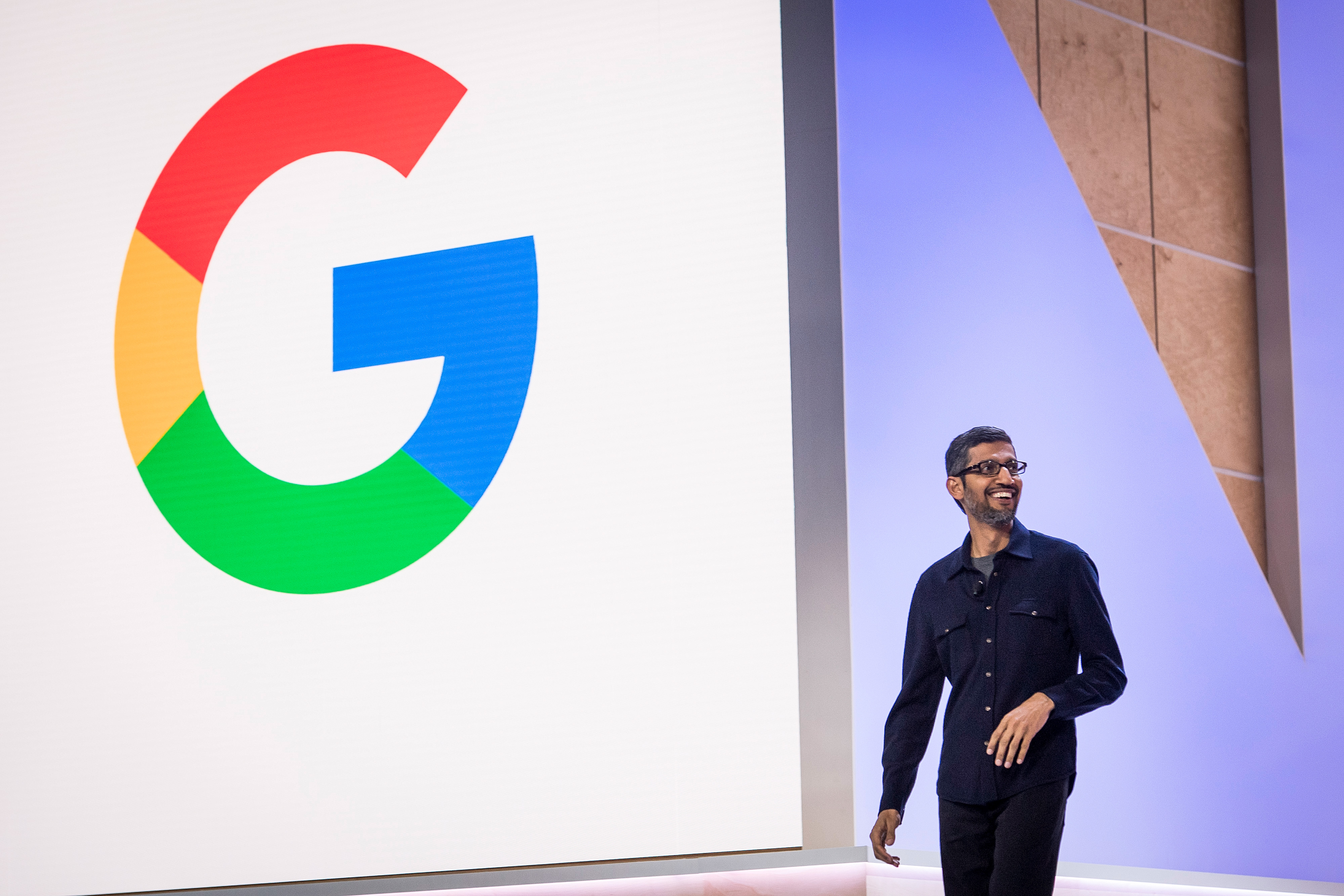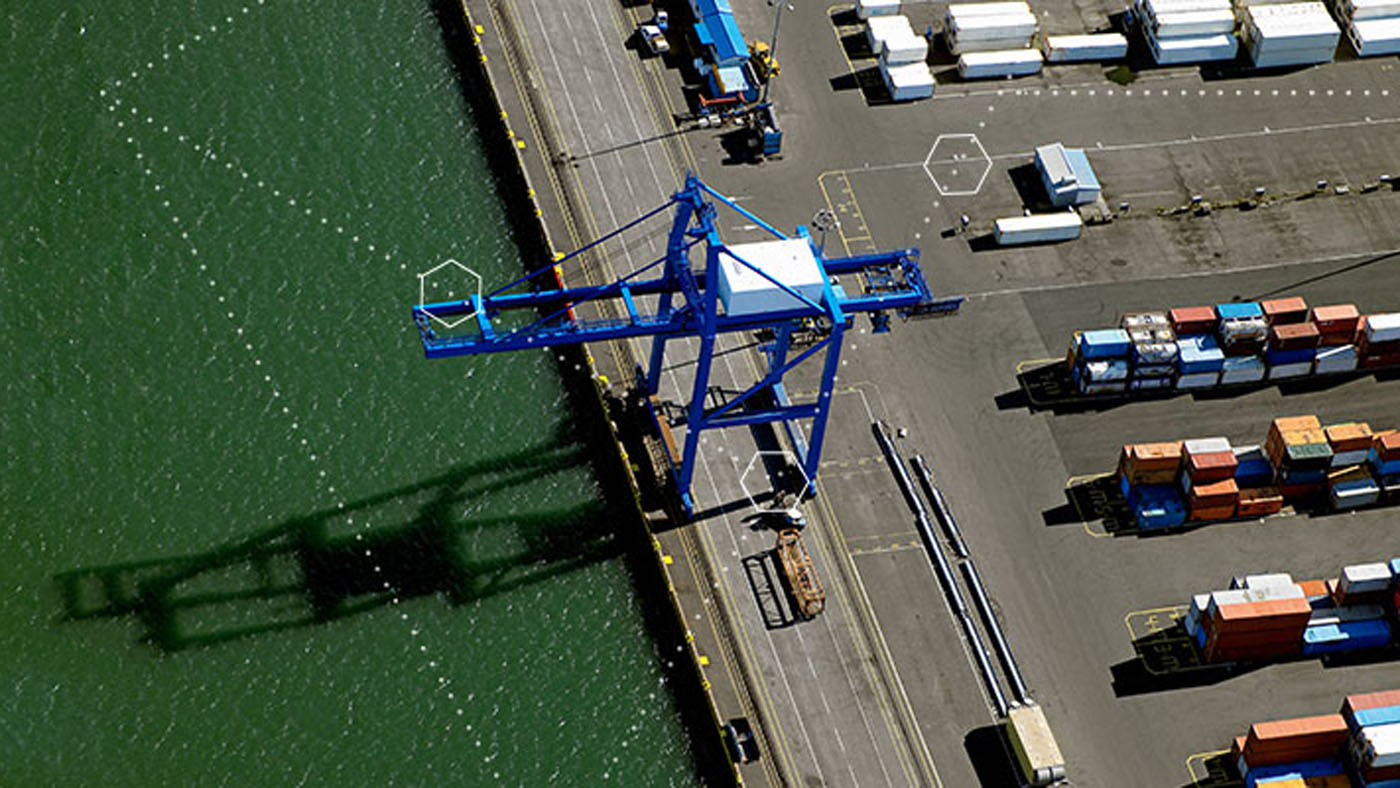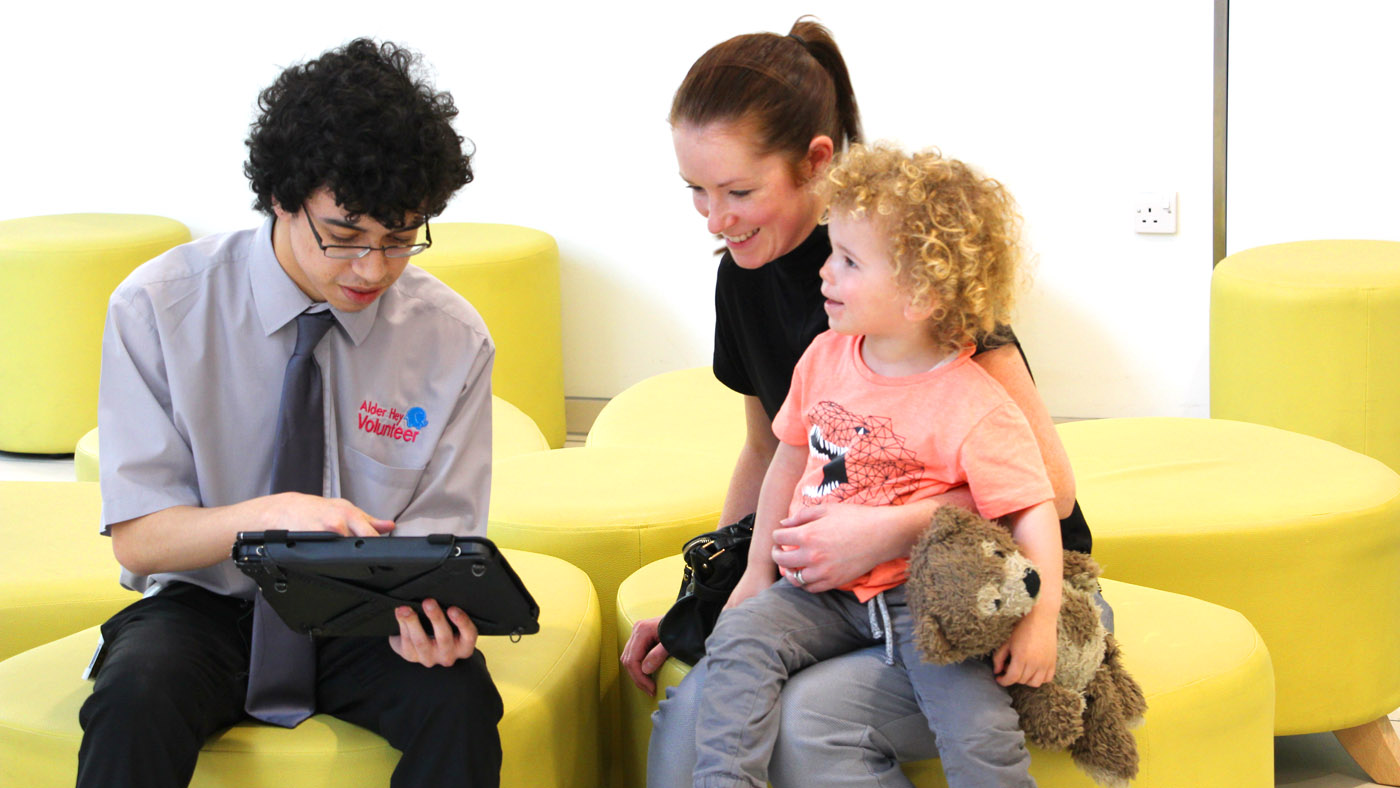How the cloud gave a vintage car new life
What began as a plan to keep track of a journey, ended up driving a 1933 touring car into the digital age

Today's cars are jam-packed with technology. They control your speed, help you steer, act as a computerised diagnostic tool alerting you to any problems - and some will even now as good as do your parallel parking for you.
But what would you get if you took some of today’s cutting-edge computing technology, and plugged it into an 80-year old, one-tonne vintage touring car?
Mark Barnard decided to find out. With a passion for rebuilding old cars and driving them on long European tours with his friends, on their unofficial race the "Tour des Cols", the prospect of refurbishing and then trialling an open-topped 1933 Riley was both a challenge and a dream come true.
The Week
Escape your echo chamber. Get the facts behind the news, plus analysis from multiple perspectives.

Sign up for The Week's Free Newsletters
From our morning news briefing to a weekly Good News Newsletter, get the best of The Week delivered directly to your inbox.
From our morning news briefing to a weekly Good News Newsletter, get the best of The Week delivered directly to your inbox.
However, being a 22-year veteran of IBM himself, Mark couldn't help wondering if they could push things a little further, beyond mechanical engineering and into the digital realm.
The result was the perfect meeting of old-school analogue with cutting-edge data collection technology. Imbued with multiple sensors and a transmitter that could speak to either a satellite or any nearby mobile networks, the Riley dream machine became a true hybrid, a melding of old and new.
"I thought OK, we can muster enough power to drive 12 volts as a supply," says Mark. "In a world of magnets and miracles, why can't I take some leading-edge modern tech and take it on this road trip?
"I had a chat with one of our managers at IBM and I said, 'wouldn't it be great to use a GPS to track where we are going on Facebook?' And the guy said, actually we have a box of tricks from a contact with telemetry and tracking software."
A free daily email with the biggest news stories of the day – and the best features from TheWeek.com
Mark’s laptop-sized magic box collected data of all kinds: what began as a relatively simple live GPS broadcast to Facebook became the kind of multifaceted data stream that could put Nasa to shame.
Longitude, latitude, altitude, speed – as well as live camera feeds on the driver and the road ahead, and a real-time readout of the driver's heart rate as they wrestled with the antique monster auto.
It went further: 3D motion sensors attached to the suspension springs recorded every bump and grind, while temperature gauges in the engine would warn of when it was time to switch on an internal cooling fan to avoid a boil-over. After all, the boiling point drops as altitude climbs, and Mark reckons they topped 3,000 metres at times.
"I could record what the engine temperature was doing and read it on my mobile phone. I could read it on the palm of my hand, rather than rely on a dashboard which wasn't really working that well."
Data was streamed live by IBM's modern messaging software to the labs back home, where it was analysed with help from the company's advanced analytical system, Bluemix - IBM's cloud solution, which allows building, running, deploying and managing applications in the cloud.
"The back end is the software. You have all this data being received and sent back here. Our IBM messaging product acts as a broker. All this data is coming in, from the cameras and Bluetooth wristband, and IBM products take hold of this and put it into Bluemix, which is the analytic solution," he says.
A deep look at the data will help Mark in his future outings. As just one example, looking at the motion-capture data sent from sensors on the springs could help him tweak things for a smoother ride.
"You are using the technology to better plan for a future event and understand what the car is doing, making the car faster and more of a joy to ride."
None of this detracted from the tactile experience of the drive. Braking had to be planned in advance – no hydraulics here, only a lever, some cables and some bus-like drum brakes to slow the beast down.
No power steering either – which perhaps explains why data analysis revealed Mark's heart rate rose as they navigated mountain passes.
Despite being kitted out with a suite of cutting-edge tech, Mark had to resort on occasion to some remarkably analogue solutions, including rebuilding some of the car's wiring after an electrical fire.
Once, after rolling over a particularly rough patch, they realised their fuel tank had split, spilling a "curtain" of fuel. The solution? First, some Spanish chewing gum. Then, some Waitrose Finest soap to stop the hole.
After braving the elements and taming the Riley in the Pyrenees, what’s next?
The answer is obvious: another tour, with a different car and a refined set of analytical tools.
"I sold my dream car last year to buy a house," he says, "but I'm looking for another one. The next car I pick up will be an absolute basket-case, a wreck.
"But you have a few brews, and you think about it, and that's how it begins."
What can you build with IBM Bluemix? Try it out for yourself today with a 30-day free trial
Learn how the IBM Cloud is designed to transform data into new insights and opportunities
-
 Find art, beautiful parks and bright pink soup in Vilnius
Find art, beautiful parks and bright pink soup in VilniusThe Week Recommends The city offers the best of a European capital
-
 Greenland: The lasting damage of Trump’s tantrum
Greenland: The lasting damage of Trump’s tantrumFeature His desire for Greenland has seemingly faded away
-
 Minneapolis: The power of a boy’s photo
Minneapolis: The power of a boy’s photoFeature An image of Liam Conejo Ramos being detained lit up social media
-
 AI job fears: how can we regulate the ‘rise of the robots’?
AI job fears: how can we regulate the ‘rise of the robots’?Today's Big Question Concern grows that ‘AI jobs bloodbath’ is underway as BT announces plan to shed 55,000 staff
-
 Has Google reached ‘quantum supremacy’?
Has Google reached ‘quantum supremacy’?In Depth IBM questions technology giant’s breakthrough in quantum computing
-
Project Debater: IBM builds robot that argues with humans
Speed Read Public debate between AI and humans ends in draw
-
 Blockchain: Beyond bitcoin
Blockchain: Beyond bitcoinIn Depth The technology underpinning the cryptocurrency could have a range of business applications
-
 How cognitive computing and cloud technology can improve our health and fitness
How cognitive computing and cloud technology can improve our health and fitnessIn Depth From medicine to athletics, IBM's cognitive, cloud-based technology is changing our understanding of the human body
-
 Ahead in the Cloud: How cloud computing is revolutionising retail
Ahead in the Cloud: How cloud computing is revolutionising retailIn Depth More than just a way to share files, businesses across the UK are waking up to the retail opportunities cloud computing can offer
-
 Why Apple is cosying up to former rival IBM
Why Apple is cosying up to former rival IBMIn Depth Apple and IBM's plan to co-produce apps will trouble rivals Microsoft, Google and Blackberry, say analysts